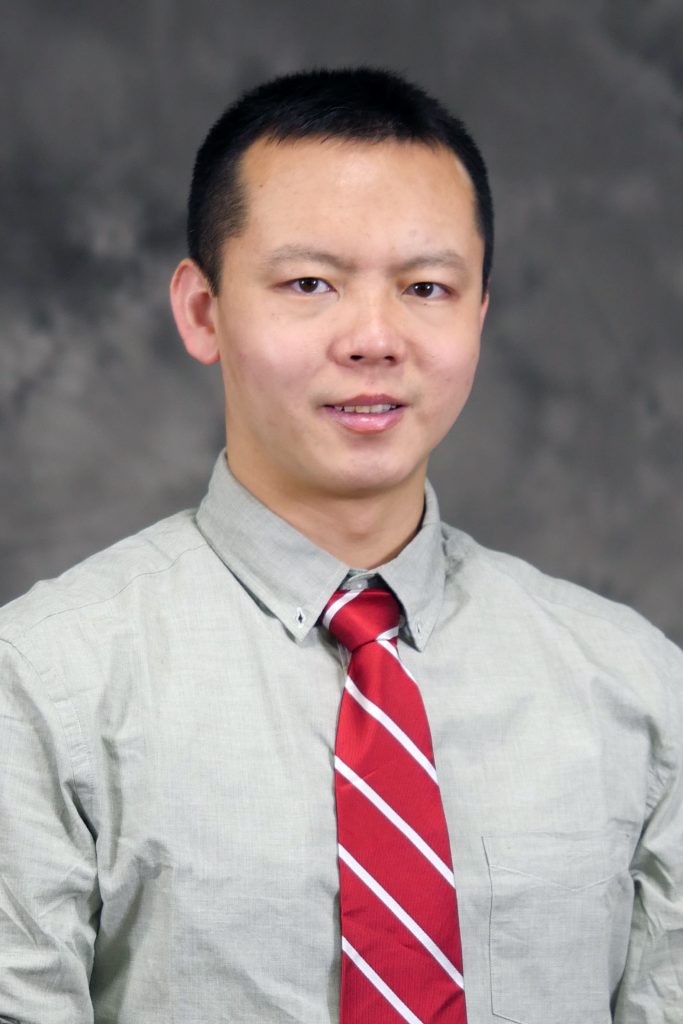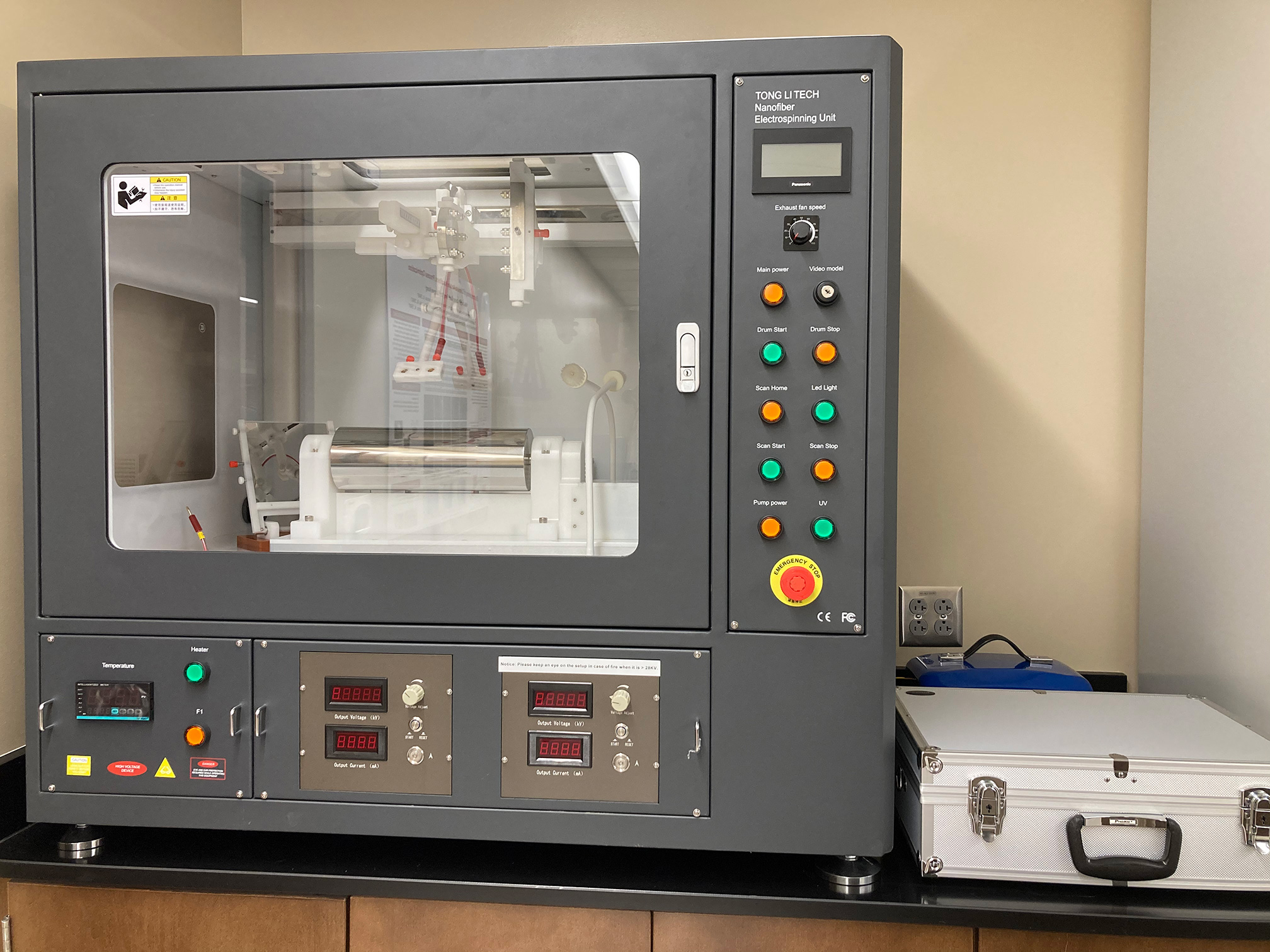
The Alabama Water Institute recently awarded an equipment grant to Dr. Lingyan Kong from The University of Alabama’s College of Human Environmental Sciences. Kong was awarded $10,900 for an electrospinner, which is a lab scale unit used to produce nanofibers. The AWI funding is half of a cost-sharing grant from CHES, bringing the total to $21,800.
According to the National Institutes of Health, electrospinning is a process that creates nanofibers through an electrically charged jet of polymer solution or melt. This technique is capable of spinning fibers into a variety of shapes and sizes and is applicable to virtually every soluble or fusible polymer.
“Part of my research is aimed at making nanofibers for water-related applications,” said Kong, an assistant professor in UA’s Department of Human Nutrition and Hospitality Management. “For example, in the most recent grant I obtained with Dr. Feng Yan, we aim to produce nanoparticle-decorated biopolymer nanofibers for water treatment.”
The equipment funding, made available through AWI’s Equipment Support Program, allowed Kong to upgrade his more simplified electrospinning setup.
“This equipment will be more efficient, versatile and productive,” he said. “We want to optimize our nanofiber making process, including raw materials, process parameters and additives, so that we achieve better performance of bio-based nanofibers.”
Kong’s current project with Yan, an assistant professor in UA’s Department of Metallurgical and Materials Engineering, is titled “Photoactive Nanoparticle-Decorated Bio-Nanofibers for Solar Energy Conversion.” It was funded by the USDA and began in June 2020. Thanks to Kong’s expertise in food science, the project allows them to incorporate bio-based polymers in the creation of nanofibers instead of synthetic polymers, which can have an adverse impact on the environment.
“Microplastics are a great challenge to the marine ecosystem,” said Kong. “For the applications we proposed, such as water desalination and water splitting through solar energy conversion, we don’t want to use synthetic polymers because they will eventually be eroded and form tiny pieces, also known as microplastics.”
Those microplastics can escape treatment by sewage plants, float in rivers, lakes and oceans, and eventually accumulate in higher level organisms including humans. Kong explained that biopolymers are biodegradable, biocompatible and renewable, making them good candidates to replace synthetic polymers for non-food applications, especially where environmental impact is concerned.
Kong said collaborating on projects like this with researchers in other disciplines is important because scientific breakthroughs are more likely to happen due to the diversity in mindsets and skills.
“I understand AWI membership and research is very diverse and covers many different aspects of water-related issues,” he said. “I think I am at the peripheral of that, but I hope my background in biopolymers will be useful for water research and similar to the solutions Yan and I proposed in the grant project.”

